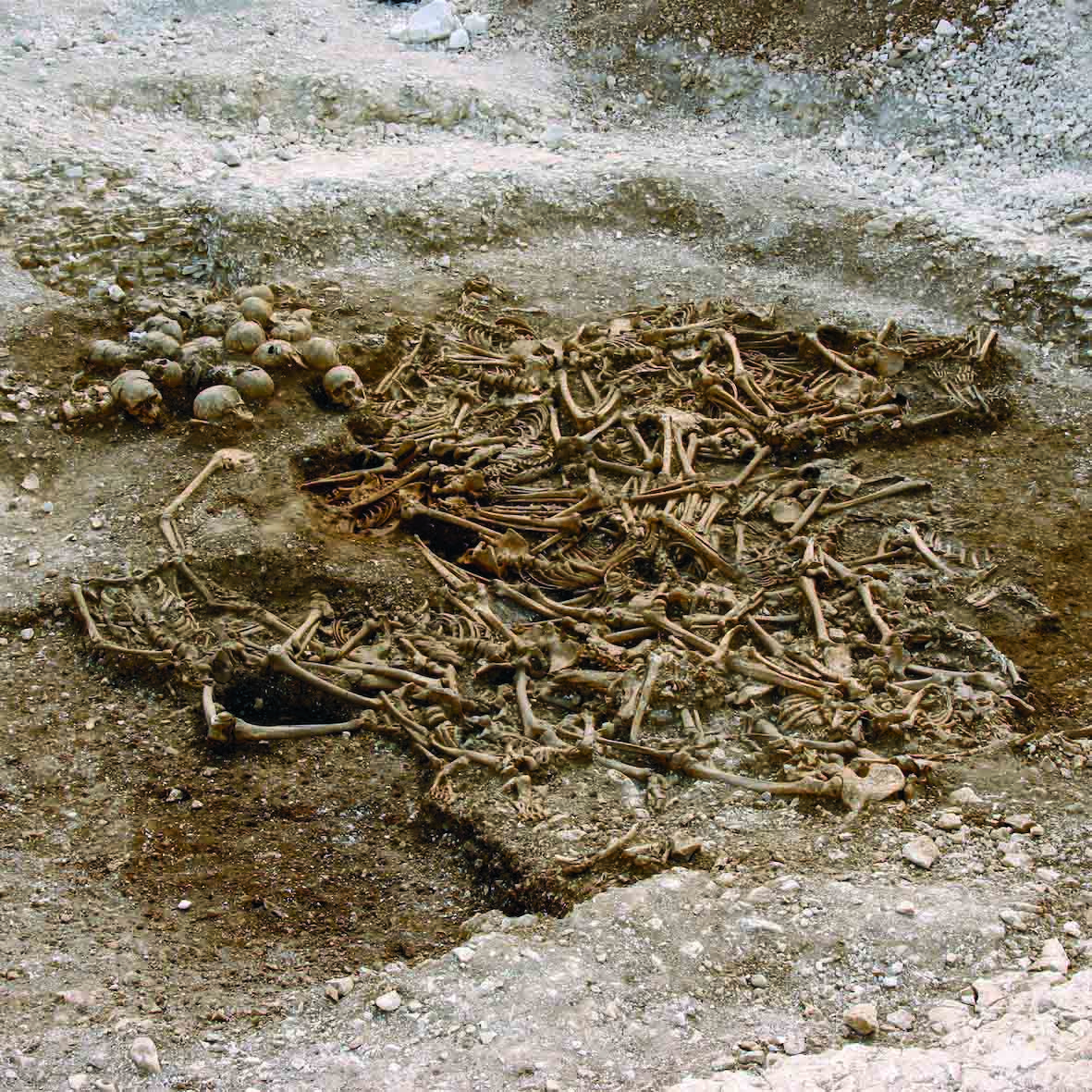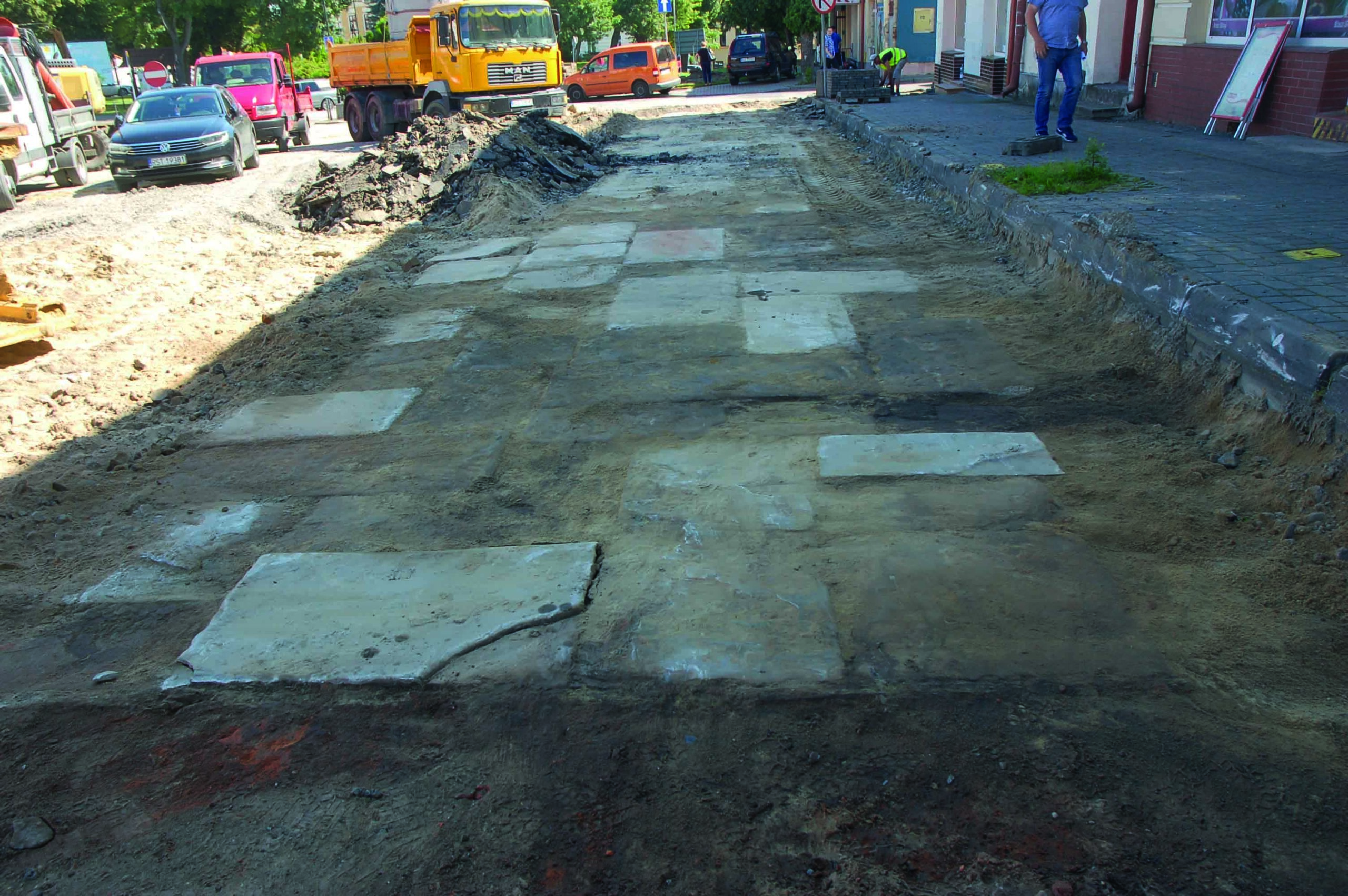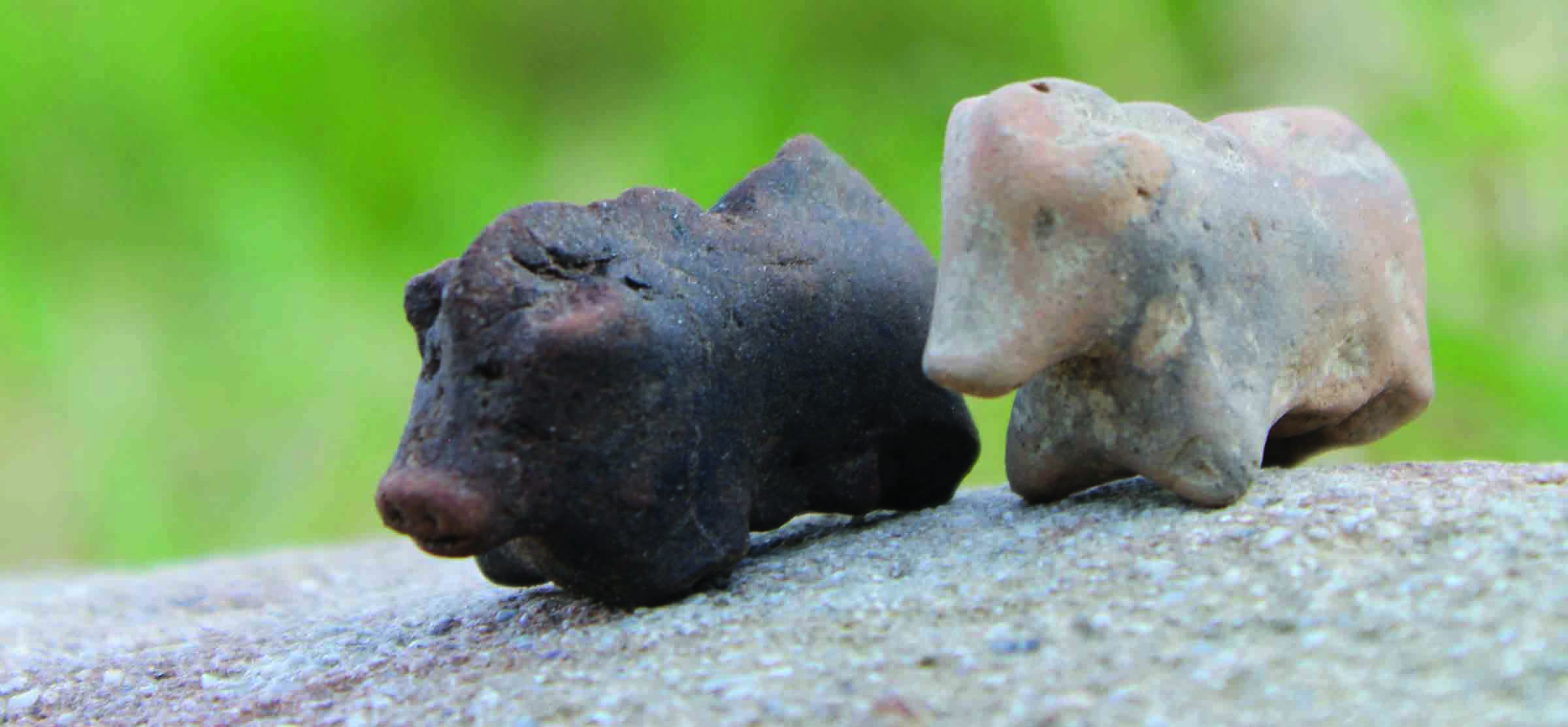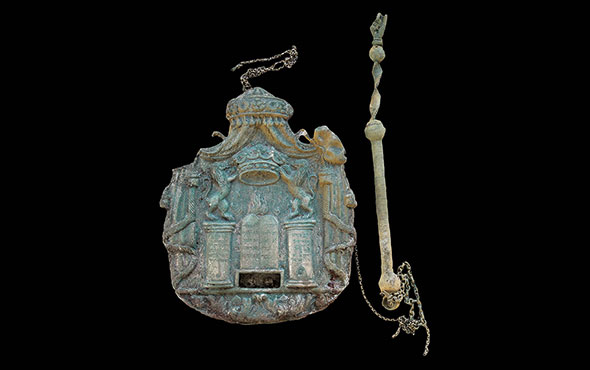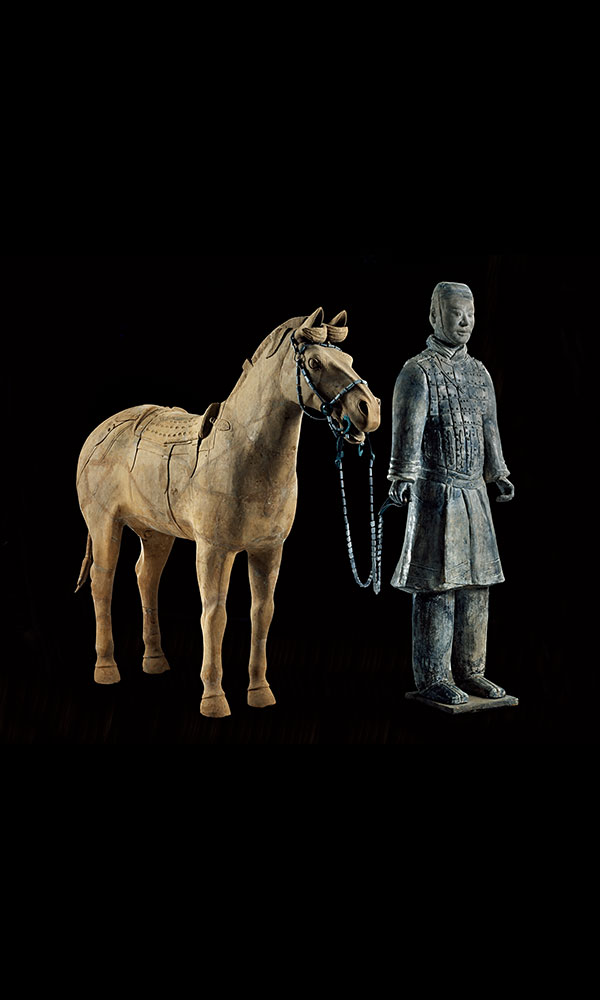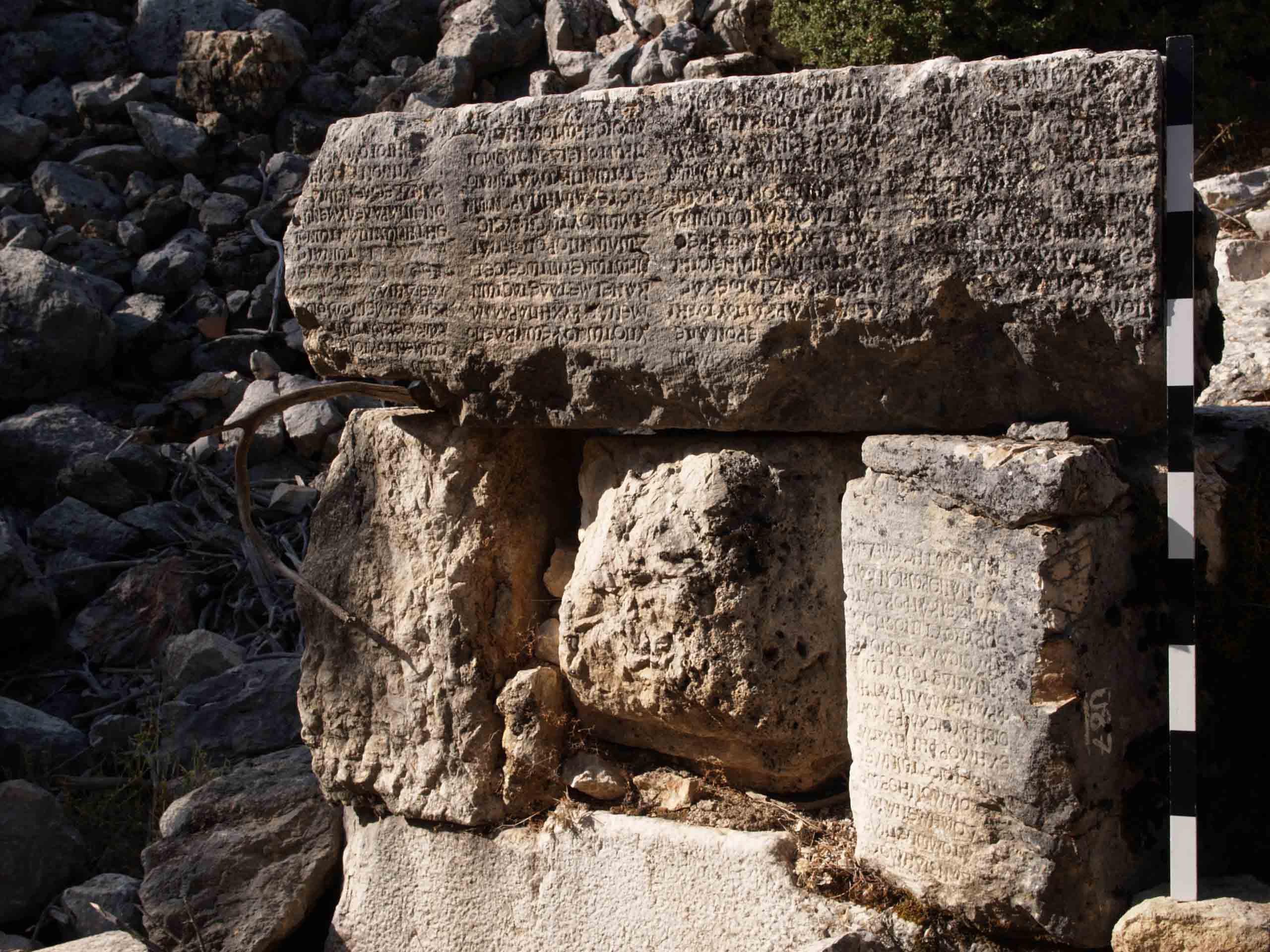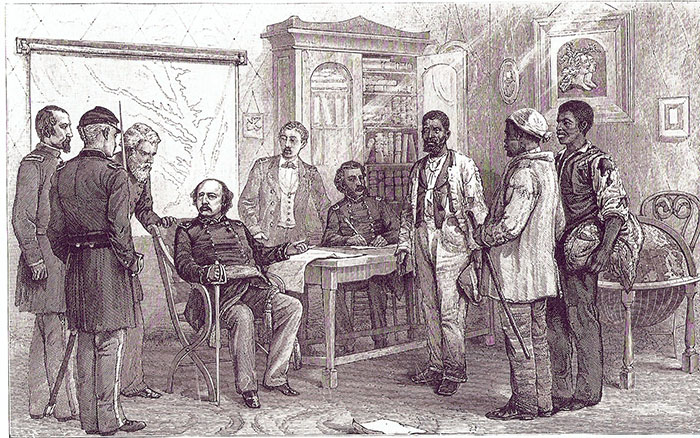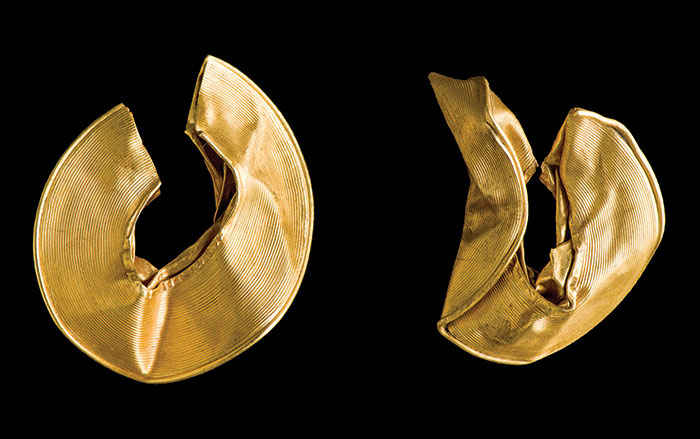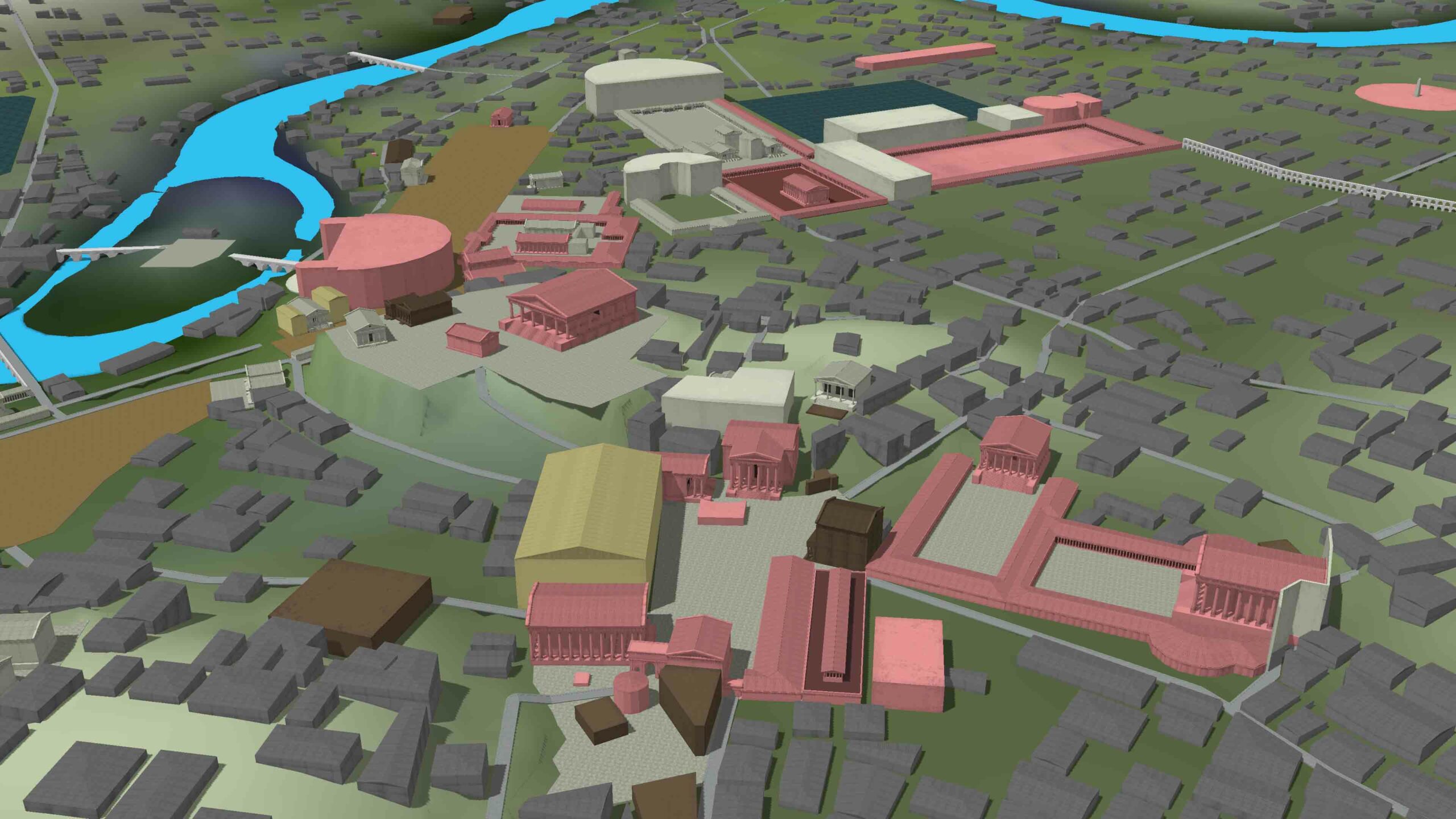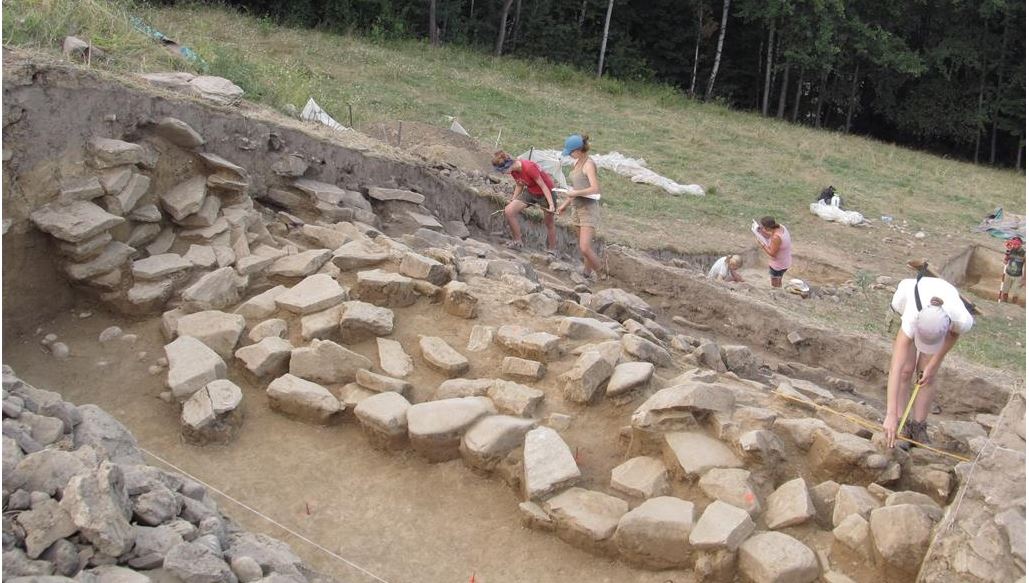
MASZKOWICE, POLAND—Beneath the remains of a Bronze Age settlement, a team from Jagiellonian University, led by Marcin S. Przybyla, has unearthed Poland’s oldest-known stone wall. “In the whole of Central Europe there are only a dozen sites dated so early with more or less well-preserved stone fortifications. At that time, the use of stone as a building material was typical of the Mediterranean areas. In the temperate zone of Europe, until the Middle Ages, fortifications were built with wood and clay,” Przybyla explained in Science & Scholarship in Poland. A figurine from the site resembles statuettes usually found in Mycenaean Greece and the northern Balkans and offers another link to Bronze Age civilizations of the Mediterranean. The structure, which has been dated to between 1750 and 1690 B.C., was built on the top of a hill that had been flattened and expanded. The sandstone walls of the fortress, thought to have been nearly nine feet tall based upon the measurements of fallen rocks, were held together with clay. A deep, narrow trench and a narrow gate were also part of the site’s defense system. To read more about the Bronze Age, go to "The Minoans of Crete."


